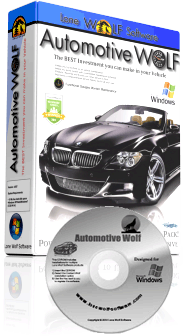| How often should I check the hoses in my
car? :
Checking the hoses in your car is an important part of regular
maintenance to ensure the proper functioning of various systems such
as the cooling system, power steering system, and fuel system. The
frequency of hose inspections can vary depending on several factors,
including the age and condition of your vehicle, as well as the
climate and driving conditions you encounter. However, a general
recommendation is to inspect your hoses at least once every six
months.
During these inspections, you should visually inspect the hoses for
signs of wear, cracks, bulges, or leaks. Additionally, check the
hose clamps or connections for tightness and ensure there are no
loose or damaged fittings. Pay particular attention to the hoses
near high-temperature areas or those exposed to oil or other
chemicals.
If you notice any signs of damage, such as cracks or leaks, it's
important to address the issue promptly. Hoses that are damaged or
deteriorated can lead to coolant leaks, overheating, loss of power
steering assistance, or fuel system problems, which can result in
engine damage or breakdowns.
Apart from regular inspections, it's also recommended to follow the
manufacturer's maintenance schedule for your specific vehicle. This
schedule often includes specific intervals for hose replacement or
more detailed inspections performed by a professional mechanic.
By staying vigilant and regularly inspecting your car's hoses, you
can catch any potential issues early and prevent more significant
problems down the line.
Checking the hoses in your vehicle is
important for several reasons:
1. Leakage Prevention: Hoses in your vehicle are responsible
for carrying important fluids such as coolant, power steering fluid,
brake fluid, and fuel. Over time, hoses can deteriorate, crack, or
develop leaks due to factors like age, heat, and exposure to
chemicals. Regularly inspecting the hoses allows you to identify any
signs of leakage or damage. Catching and addressing hose issues
early can prevent fluid leaks that could lead to vehicle
malfunctions or potential damage.
2. Coolant System Efficiency: The cooling system in your
vehicle relies on hoses to circulate coolant between the engine,
radiator, and other components. If a hose develops a leak or becomes
damaged, it can result in coolant loss, leading to engine
overheating. Checking the condition of coolant hoses helps ensure
their integrity, preventing coolant leaks and maintaining the
cooling system's efficiency.
3. Safety: Some hoses in your vehicle are responsible for
transporting vital fluids related to the braking and steering
systems. For example, brake hoses carry brake fluid, and power
steering hoses carry power steering fluid. Any damage or leakage in
these hoses can compromise the performance and safety of these
systems, potentially leading to brake failure or difficulty in
steering. Regular hose inspections help identify any issues before
they escalate, ensuring the safe operation of your vehicle.
4. Optimal Performance: Hoses play a crucial role in the
proper functioning of various systems in your vehicle. When hoses
are damaged, loose, or disconnected, it can result in inefficient
performance. For instance, a vacuum hose leak can lead to a loss of
engine power or affect the operation of components like the EGR
(Exhaust Gas Recirculation) system. Regularly checking hoses helps
maintain their integrity and ensures that all systems in your
vehicle operate optimally.
5. Preventive Maintenance: Inspecting hoses is part of
regular preventive maintenance. By regularly checking and replacing
worn-out or damaged hoses, you can prevent unexpected breakdowns and
costly repairs down the line. Taking proactive steps to maintain
your vehicle's hoses can extend their lifespan and help you avoid
inconvenience and expenses associated with hose failures.
During hose inspections, look for signs of cracks, leaks, bulges, or
soft spots. Pay attention to any unusual smells, fluid drips, or
changes in vehicle performance that may indicate hose problems. If
you notice any issues, it's advisable to have the hoses inspected
and replaced by a qualified mechanic or technician. |





